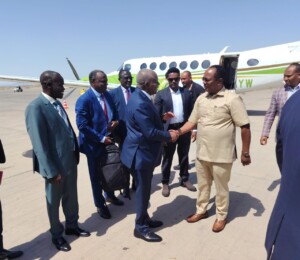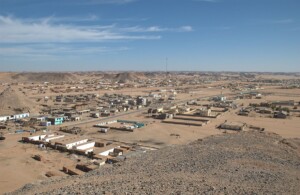Former judges want Abdelgadir Ahmed as head of Sudan judiciary
The Former Judges’ Association is adhering to the appointment of Abdelgadir Ahmed as a head of the judiciary in Sudan, former judge Hasan Fadlallah confirmed at a press conference in Khartoum on Thursday.

The Former Judges’ Association is adhering to the appointment of Abdelgadir Ahmed as a head of the judiciary in Sudan, former judge Hasan Fadlallah confirmed at a press conference in Khartoum on Thursday.
Fadlallah said that members of district committees and many other activists are applying pressure to the former judges to carry out a “march of millions”, calling for the appointment of Abdelgadir Ahmed as head of the judiciary.
He pointed out that the junta refused to appoint Ahmed, arguing that he writes articles on the Rule of Law. He also called for a trial for those involved in the violent breaking up of the sit-in in front of the army command in Khartoum on June 3, where more than 100 protesters were killed, hundreds were wounded, and an unknown number of people went missing.
Absurd play
Former judge Fadlallah described the trial of the ousted President Al Bashir as an absurd play, not a real trial.
He said that he expects the ousted president to be convicted in court for the minor financial crimes he has been indicted for. Fadlallah asserts that should Al Bashir be convicted by a court in Sudan, he will first have to serve his sentence in a Sudanese prison before he can be extradited to face the International Criminal Court (ICC) in The Hague.
Appointments
As reported by Radio Dabanga last week, members of the Forces for Freedom and Change (FFC) and lawyers have expressed surprise at the refusal of the Sudan junta to nominate Abdelgadir Ahmed as head of the judiciary and Mohamed El Hafiz as Attorney General along with three assistants. The junta claims that the Constitutional Declaration stipulates that candidates for these posts should be selected by the Supreme Judicial Council. The TMC itself has removed and appointed persons for these positions several times during its rule.
Our editorial independence means that we can continue to provide factual updates about political developments to Sudanese and international actors, educate people about how to avoid outbreaks of infectious diseases, and provide a window to the world for those in all corners of Sudan. Support Radio Dabanga for as little as €2.50, the equivalent of a cup of coffee.












 and then
and then